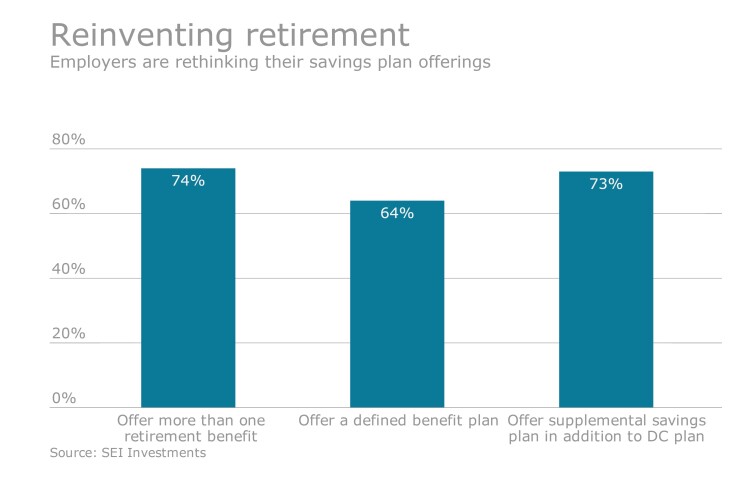Consider the legend of Alexander the Great and the Gordian Knot: An ox-cart was tied to a post with an elaborate knot. An oracle predicted that any man who could unwind this knot would become ruler of Asia. Alexander, being unable to untangle the knot, simply drew his sword and cut it in two.
The relationship between recordkeepers and third party administrators, and how the dynamics work with effective retirement plans, may seem like a Gordian Knot. As a primer: A recordkeeper is the liaison between participants and their investment transactions, while a TPA works on administration and compliance with federal requirements. Plan sponsors can use bundled recordkeeper and TPA platforms that combine the two roles or they can choose separate groups to serve in each function.

A TPA, as opposed to a bundled recordkeeper and TPA platform, may offer more customization and a “hands on” retirement plan administration service often performed by a consistent individual or stable team. In neither scenario does a plan sponsor transfer their fiduciary risk, and they are still responsible for timely, accurate reporting of the various inputs needed for plan administration.
A skilled TPA, however, may act as a second line of defense if the data they receive is of questionable quality by actively reviewing data received by a plan sponsor.
Bundled recordkeeper and TPA platforms often accept the data they receive as is, with little follow-up to its validity. Retirement plan advisers should therefore consider the specific needs of their retirement plan clients when considering an independent TPA’s services.
Cost-benefit analysis
If the plan sponsor is skilled and experienced in their duties or have a more “off-the-shelf” plan design, then the cost benefit of the bundled platform may be appropriate. For those plans where more customized plan design elements are in place, and the administrative burden of the plan is only one aspect of a plan sponsor’s role and additional, tailored administrative assistance may be required, then the added service level of a TPA may prove beneficial.
The natural downside that an independent TPA may bring to a plan is the potential for additional cost. This is most notable in smaller plans, where the base fees of a TPA may account for a notable chunk of total plan fees. The Catch-22 of this fee dilemma is that smaller plans, which may not have the experience or the staff to confidently administer their plans, may be in the greatest need of a competent TPA to address servicing the plan correctly.
According to WalletHub research, these cities top the list in affordability, quality of life and healthcare.
Different service providers have varying degrees of relevance. Independent TPAs should be considered for clients that need specialized administrative assistance and as a partner for clients who need to outsource some of the administrative burden, while being cost-effective. Just as Alexander cleverly cut the knot, advisers must untangle the complexities of competing agendas to find a suitable solution for plan and organizational effectiveness.
This information was developed as a general guide to educate plan sponsors, but is not intended as authoritative guidance or tax or legal advice. Each plan has unique requirements, and you should consult your attorney or tax adviser for guidance on your specific situation. In no way does adviser assure that, by using the information provided, plan sponsor will be in compliance with ERISA regulations.
Securities and Advisory services offered through LPL Financial, a Registered Investment Advisor. Member FINRA/SIPC.






